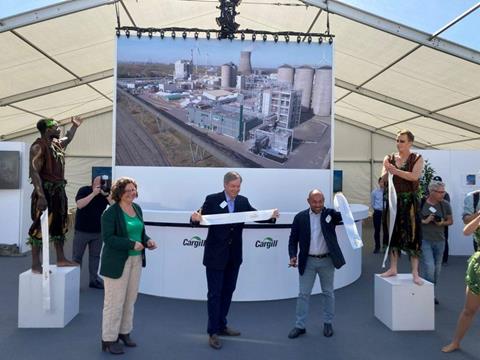A newbiodiesel plant has openedatCargill’s existing facility in Ghent, Belgium, which will produce renewable fuel for the shipping and freight industries.
Thenewbiodiesel plant will convert waste oils and fats into renewable fuel at its Ghent facility, located in North Sea Port in Belgium.
“With this advanced waste treatment technology, we are offering an innovative solution that meets the global demand for renewable energy, respects environmental requirements and helps customers meet their greenhouse gas commitments,” said Alexis Cazin, managing director for Cargill Biodiesel & Carbon EMEA.
Alt fuel investment
Cargill has invested US$150 million in the existing oilseed and biodiesel plant in Ghent, taking a first step in the production of advanced biodiesel.
The new facility will produce up to 115,000 tonnes per year, equivalent to the annual consumption of 10,000 trucks or 150,000 cars. This will create 20 new direct jobs and 60 indirect jobs at the Ghent plant.
“This investment in a completely new circular plant strengthens North Sea Port’s position in terms of alternative fuel production,” said Daan Schalck, CEO, North Sea Port.
This project is Cargill’s first to convert waste to biofuel and one of the largest such facilities in Europe.
Using state-of-the-art technologies, the US food multinational’s plant transforms all kinds of waste liquid oils and fats into advanced biodiesel. These include used cooking oils, tallow and residues from the production of edible oils.Cargill describes the project as supporting the circular economy by upgrading products that were previously discarded or destined only for low-value applications.






